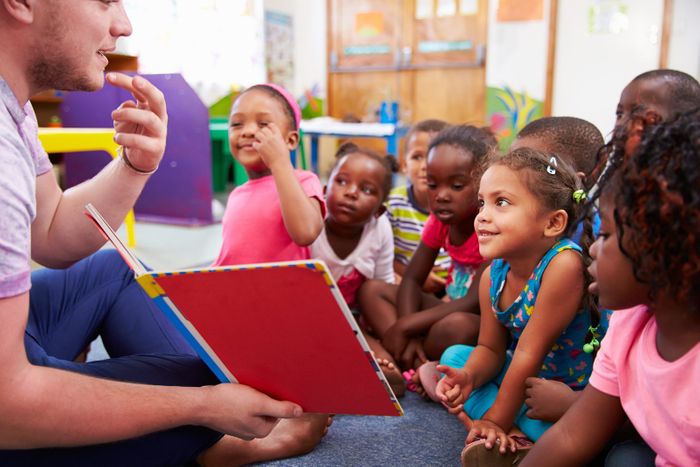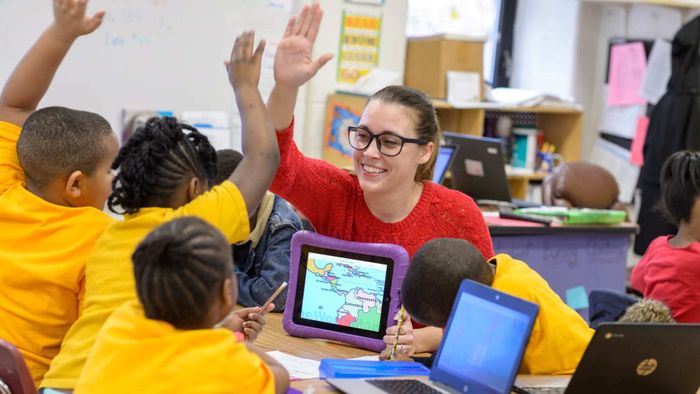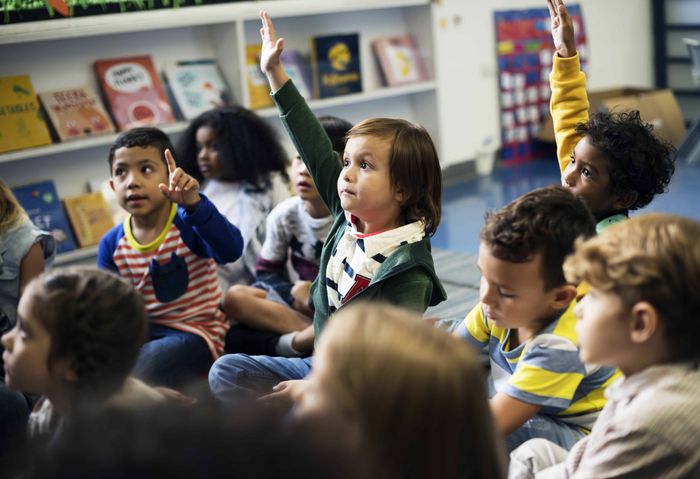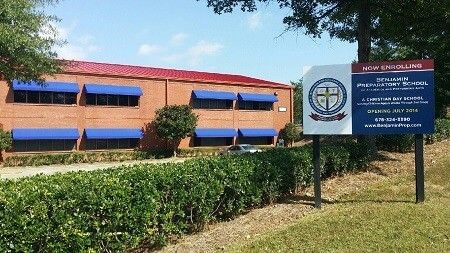Success in school is a journey that begins long before students set foot in a classroom. Early childhood education lays the foundation for future academic triumphs, shaping young minds and preparing them for the challenges ahead. In this blog, we will go through the profound impact of early childhood education on success in school, exploring key aspects that contribute to a student's academic journey.

How is Success in School Impacted by Early Childhood Education
Early childhood education encompasses the crucial years from birth to eight years old, a period marked by rapid brain development and the formation of essential cognitive, social, and emotional skills. During this time, children absorb information like sponges, and the quality of their early learning experiences significantly influences their later academic performance.

Brain Development and Cognitive Skills
The early years are a critical period for brain development, and early childhood education plays a crucial role in fostering cognitive skills. Stimulating learning environments, educational games, and interactive activities during this phase enhance a child's ability to think critically, solve problems, and develop language skills. These foundational cognitive abilities are important for success in later academic objectives.

Social and Emotional Development
Success in school is not only determined by academic achievements; social and emotional development is equally crucial. Early childhood education helps children build essential social skills, such as cooperation, communication, and empathy. The ability to guide social situations and form positive relationships contributes significantly to a student's overall success in school.

Language Development
Language proficiency is the foundation of academic success. Early childhood education programs focus on language development through storytelling, conversations, and exposure to prosperous language environments. A strong foundation in language during the early years lays the groundwork for effective communication, comprehension, and literacy skills in later academic success.

The Ripple Effect on School Success
Early childhood education sets off a positive domino effect that extends throughout a student's academic journey. Let's explore the interconnected factors that contribute to sustained success in school.
- Readiness for Formal Education
Children who receive quality early childhood education are better equipped to transition smoothly into formal schooling. They enter kindergarten with a solid foundation of cognitive, social, and emotional skills, giving them a head start in the learning process. This readiness enhances their engagement in classroom activities and promotes a positive attitude toward education.
- Reducing Achievement Gaps
Access to early childhood education helps bridge the achievement gaps that may arise due to socio-economic differences. By providing all children with equal opportunities for quality early learning experiences, we create a more level playing field, reducing disparities in academic achievement as they progress through school.
- Long-term Academic Performance
Research consistently demonstrates the long-term benefits of early childhood education on academic performance. Students who have a strong start in their early years exhibit higher levels of academic achievement, better graduation grades, and an increased likelihood of pursuing higher education. Therefore, investing in early childhood education is an investment in the future success of our students.
The Connection to Lifelong Learning
Success in school is not an isolated event; it sets the stage for a lifelong journey of learning and personal development. Early childhood education forms a love for learning and a curiosity that extends beyond the classroom. Let's explore how this connection between early experiences and lifelong learning develops.
- Fostering a Growth Mindset
Early childhood education nurtures a growth mindset, instilling in children the belief that their abilities can be developed through dedication and hard work. This mindset becomes a driving force for continuous learning, resilience in the face of challenges, and a willingness to learn new opportunities throughout life.
- Critical Thinking and Problem-Solving Skills
The foundation laid in early childhood education equips students with critical thinking and problem-solving skills that are essential for guiding the complexities of the modern world. These skills not only contribute to academic success but also empower students to approach challenges with confidence and creativity.
- Building a Foundation for Lifelong Learning
The habits and attitudes toward learning formed during the early years become ingrained in an individual's approach to education. Therefore, early childhood education serves as the cornerstone for building a strong foundation for continuous learning, adaptability, and intellectual curiosity that extends well into adulthood.

Empowering Parents and Communities
The impact of early childhood education extends beyond the classroom; it involves active collaboration between educators, parents, and communities. Empowering parents with knowledge and encouraging community engagement play a crucial role in maximizing the benefits of early childhood education.
- Parental Involvement
Parental involvement is a cornerstone of a child's educational success, and early childhood education relies on strong partnerships between parents and educators. Workshops and seminars provide parents with insights into developmental milestones, effective communication strategies, and techniques to support learning at home. Encouraging open dialogue between parents and teachers facilitates a collaborative approach to a child's education, ensuring that the principles learned in early childhood education are reinforced in the home environment. By actively participating in their child's educational journey, parents become supporters of lifelong learning, developing an atmosphere where curiosity and exploration are celebrated.
- Community Support
Communities play a crucial role in supporting early childhood education initiatives. Local businesses, community centers, and non-profit organizations can collaborate to create accessible, high-quality early learning programs. Beyond financial support, community engagement involves advocating for policies that prioritize early childhood education, creating awareness campaigns, and organizing events that celebrate the importance of early learning. By uniting as a community, individuals can collectively contribute to the success of every child, ensuring that early childhood education becomes a shared responsibility. This collaborative effort builds a foundation where every child, regardless of background, has the opportunity to grow and excel academically, setting the stage for a brighter collective future.

Locating Early Childhood Education Schools in Atlanta
Ensuring that your child has access to quality early childhood education is essential. Explore reputable schools in your local area, including Benjamin Prep School, serving Vinings, Kennesaw, and Atlanta. Our institution prioritizes a holistic approach to child development, providing a nurturing learning environment.
Conclusion
The impact of early childhood education on success in school is profound and far-reaching. From shaping cognitive and social skills to fostering a love for learning that extends throughout life, the benefits are immeasurable. As we advocate for the importance of early childhood education, let us recognize its role in building a foundation for academic success and empowering individuals to grow in their educational journey.
FAQs
What is Early Childhood Education, and Why is it Important?
Early Childhood Education refers to the educational programs designed for children from birth to eight years old. It is crucial as it lays the groundwork for cognitive, social, and emotional development, shaping a child's abilities and readiness for future learning experiences.
How Does Early Childhood Education Impact Academic Success?
Early Childhood Education significantly influences academic success by fostering cognitive skills, enhancing social and emotional development, and promoting language proficiency. The positive effects extend throughout a student's academic journey, ensuring a smoother transition to formal education and reducing achievement gaps.
Are There Tangible Benefits of Early Childhood Education in Real-Life Scenarios?
Yes, numerous success stories highlight the real-life impact of early childhood education. Individuals who have benefited from quality early learning experiences often exhibit higher academic achievements, better graduation grades/rates, and a lifelong love for learning.
What Role Do Parents Play in Early Childhood Education?
Parents play a crucial role as supporters in their child's early education. Their involvement, through workshops, parenting programs, and facilitating a positive learning environment at home, enhances the overall impact of early childhood education on a child's development.
